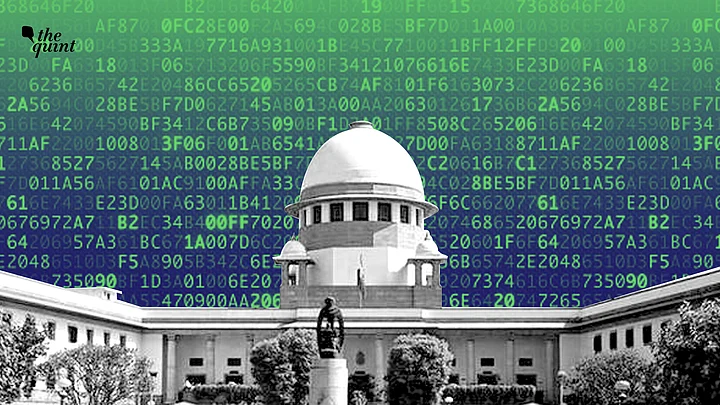The Supreme Court will, on Friday, 13 September, hear a transfer plea by Facebook on a number of cases across high courts seeking to link Aadhaar with social media accounts. Facebook is currently a respondent in a PIL seeking Aadhaar-social media linking, which is pending before the Madras High Court.
The apex court, on 20 August, also issued a notice to all the parties in the case: WhatsApp, Google, YouTube and others, and sought their responses by the date of the next hearing.
Although, the court had dismissed the call for linking early on itself, and is currently focused on the issue of encryption on messaging platforms like WhatsApp, the transfer plea treats this as a case pertaining to Aadhaar-social media linking. This linking was the principle request before the Madras High Court, in a PIL filed by Antony Clement Rubin in 2018.
However, in subsequent hearings, the scope of the case was expanded to include the issue of encryption and the possibility of introducing traceability of forwarded messages on encrypted communication platforms such as WhatsApp.
Ruben, an animal rights activist, told The Quint that he had filed the PIL in 2018 after severe cyber bullying by anonymous pages on the issue of Jalikattu. Unable to get Facebook to take action against the alleged abusive cyber bullies, Rubin said he approached the court to issue directions to social media platforms.
“The end relief that I am seeking through my PIL is for cyber bullying to be curbed. I want privacy to be protected understand implications of Aadhaar linking but bullying affects people and should not be anonymous.”Antony Clement Rubin
What Supreme Court Told Facebook, WhatsApp
The two-member bench said, the policy issues can be decided by the high courts and it has jurisdiction to do so but the question is that the current issue has larger ramification.
The top court asked senior advocate Mukul Rohatgi, appearing for Facebook Inc, and Kapil Sibal, appearing for WhatsApp, to explain what would be the effect of recent amendments in Aadhaar Act by which the 12-digit unique identity number could be shared with the private party for larger public interest.
Rohatgi replied that under the new amendments, Aadhaar could be shared with the third party only for authentication purpose.
Sibal supplemented the arguments of Rohatgi said that WhatsApp was a global platform and effect of any orders of the high court will have the effect globally.
"Due to orders of the High Court, WhatsApp may have to change its privacy policy and therefore the matter should be heard in the Supreme Court," Sibal said.
Venugopal opposed the arguments of Rohatgi and Sibal and said that both Facebook and WhatsApp have accepted the jurisdiction of Madras High Court in dealing with the issue which would help the agencies to check fake news, pornographic content, terror messages as the originator could be traced.
Venugopal referred to the effect of Blue Whale challenge and said that several young lives were lost due to it, as the curator used to give directions to the children to make cuts on their bodies and eventually commit suicide.
"Government of India and several others state government tried to identify the curator but all efforts went in vain. Some said that he was in Russia and some said he was in Germany but no one could identify them. Therefore it is necessary that we get to know who is the originator of the message on social media," Venugopal said.
To this, the bench expressed concern over dangers in the dark web and said although they have not accessed it but what they have heard the things which are going on are far worse.
What’s Up With WhatsApp in Madras HC?
Facebook’s petition seeks to transfer the PIL which is pending before Madras High Court to the apex court. While the top court has not stayed proceedings before the high court, it has only restricted it from submitting its final finding.
In its last hearing on July 24, the High Court wanted to know if it is technically possible to trace the originator of a forwarded message on WhatsApp. In this regard, Dr V Kamakoti, a professor of Computer Science at IIT Madras and a member of the National Security Advisory Board under the Prime Minister’s Office, submitted a formal report on traceability on 31 July.
Kamakoti, in his report to the Court, provided two suggestions “detailing how originator information of a WhatsApp message could be traced”.
Internet Freedom Foundation, which is an intervener in the case, however, said that diluting encryption in any form will have serious implications for the privacy of WhatsApp’s users.
“Introducing traceability would not only remove anonymity but result in fingerprinting of each message sent on any social media platform with the device ID which then, in turn, ties in with the real world ID of an individual because of eKYC required for phones,” Apar Gupta, Executive Director of Internet Freedom Foundation told The Quint.
(With inputs from PTI)
